Meet the Ludhiana Advocate Who Runs a School for Ragpickers in a One-Room Slum Hutment
Meet Hari Om, a 50-year-old advocate from Ludhiana who is slowly changing the lives of children in a city slum. Here's how.
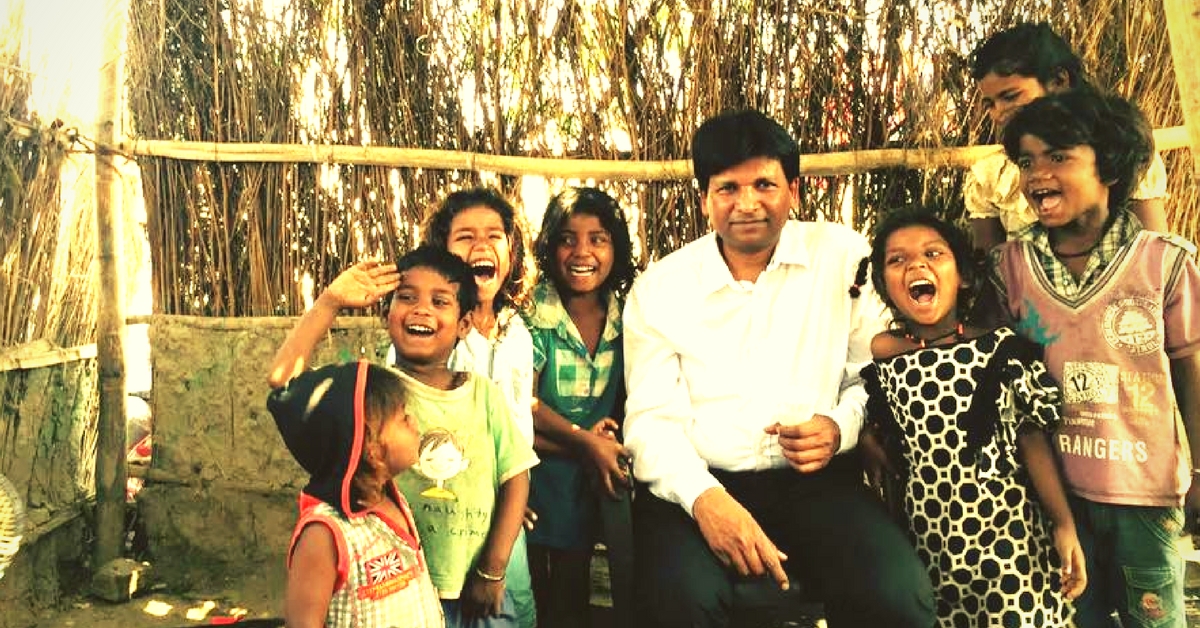
Meet Hari Om, a 50-year-old advocate from Ludhiana who is slowly changing the lives of children in a city slum. Here’s how.
“It isn’t a child’s fault if he/she is born into an underprivileged family. All such children need education to succeed in life and shine brightly. But the problem is they usually don’t have anyone to look after them or worry about their education. This injustice, created right at the time of birth of these children, prevents the economic growth of one section of society. This is of major cause of concern for me. This is why, after giving some thought to the matter, I started working on my project to provide quality education to children in need,” says Hari Om Jindal, a Ludhiana-based advocate who runs a school in a slum in the city.
The children in this school used to be rag pickers and beggars once upon a time; today they are learning English, maths and much more.
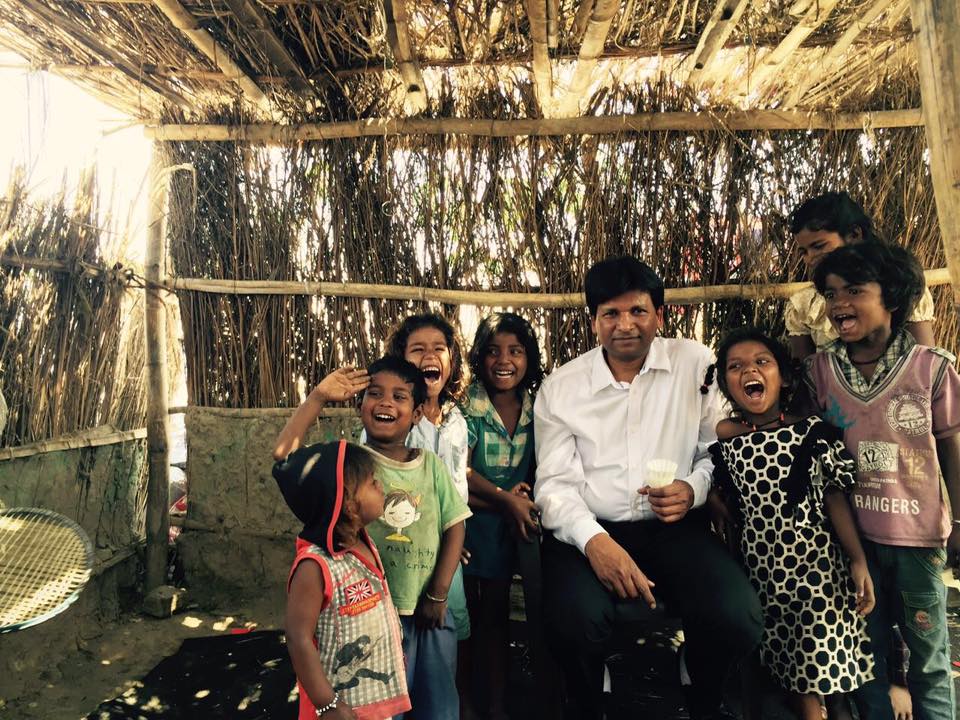
The school is located in a slum near the Dairy Complex Area of Hambran Road in Ludhiana. It is housed in a simple hut-like construction, with just one room where classes take place in shifts. “I did not want even one child in the slum to be deprived of basic education. It was important to ensure that kids reach the school conveniently – otherwise they would come one day and be absent the next. So I decided to take education right to their doorsteps. I took an open area in the slum and constructed a hut-like room that now acts as a classroom,” says 50-year-old Hari Om who started the school in May 2014.
Hari Om has a unique way of enrolling his students in school. Whenever he comes across children who are rag-picking or collecting garbage, he stops to talk to them.
He asks them questions about themselves and their families, and distributes sweets and toys among them regularly. While it takes a lot of time to win their trust, he continues to go to the same spot every day.
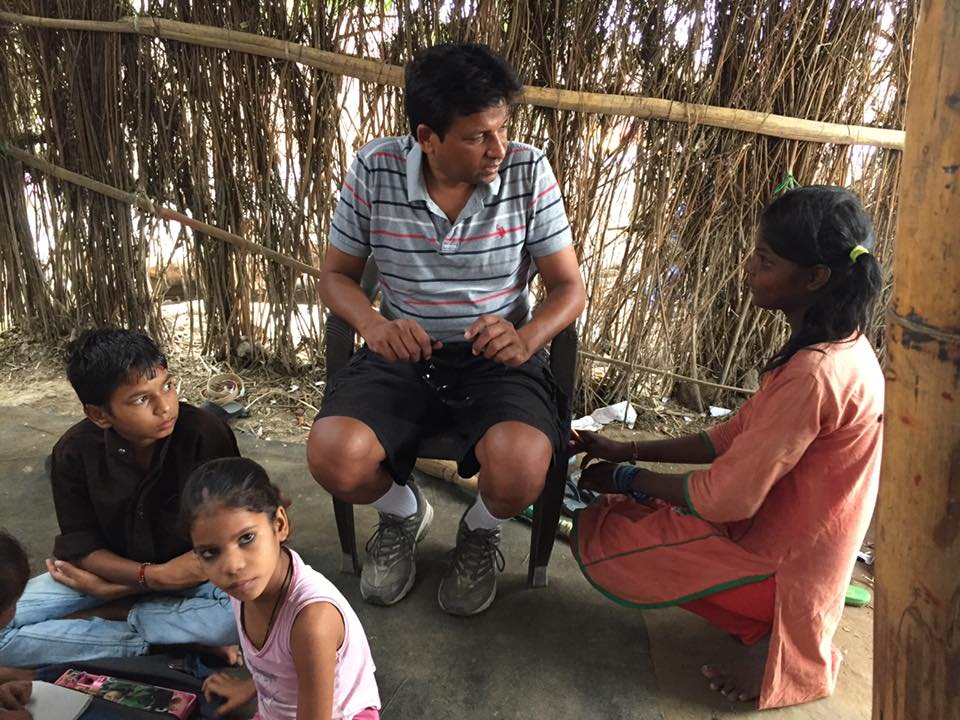
“They start trusting me over a period of three to four months once they understand that I keep coming for their good. And the next task, after the kids agree to come to school, is to convince their parents. I help them understand the importance of education, which is again a time-consuming process. It is also difficult to get the children to quit rag-picking because it is their source of income. But I never give up on any of them.”
In this way, the school that started with 12 children now has 30 – in the age group of 4 to 14 years.
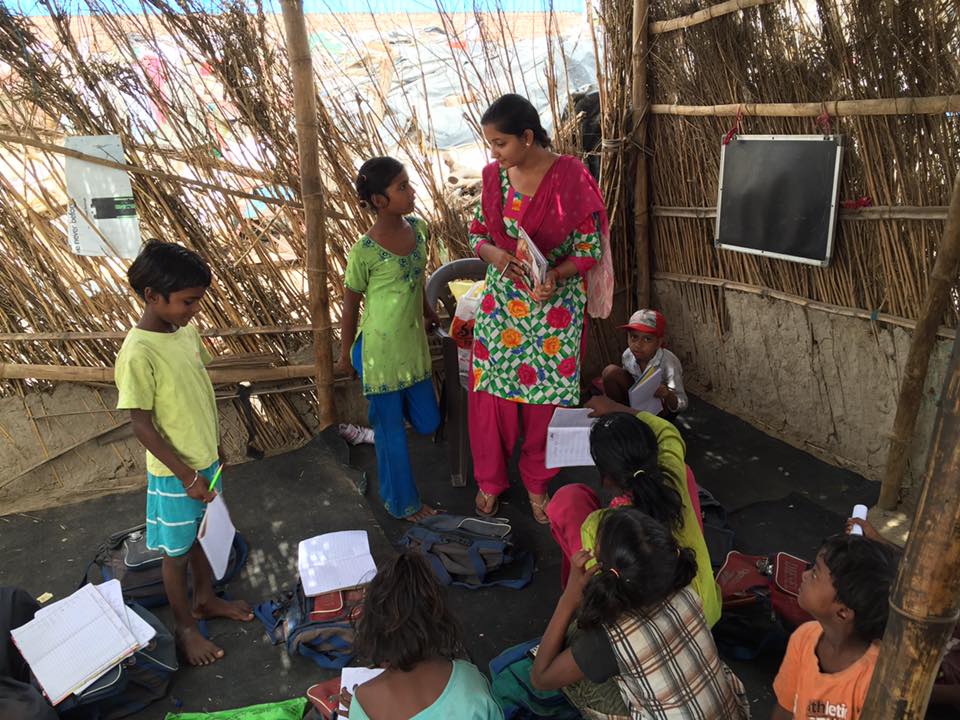
One of the best things about Hari Om’s school is that children here learn a lot more than just alphabets and numbers. They are taught about things that will help them in everyday life as well. If one class is about sentence formation, another is about the workings of a democracy; and if they learn about division and multiplication one day, it is all about taxes the next. “What I am doing is helping them get a basic understanding of life. They know all about public property, taxation, governance, voting, the Constitution, their fundamental rights and duties, how we select our representatives, how we can hold them accountable, etc.”
In fact, the school has been so successful that eight women from the slum have also joined as students here.
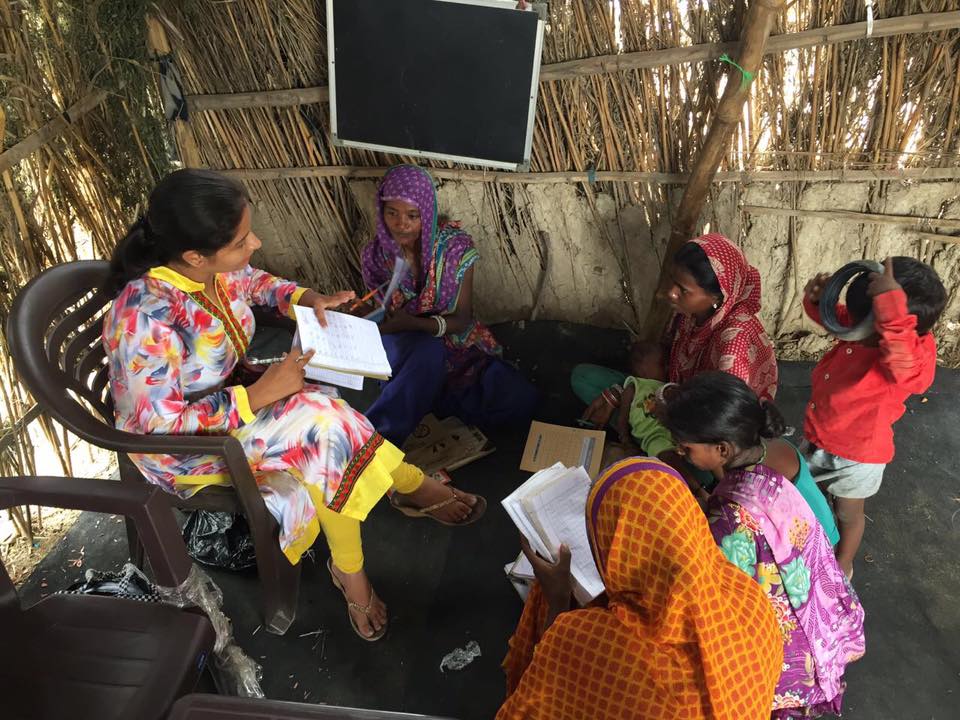
They attend the afternoon classes to learn English and maths. One of the women is Savita. When Hari Om asked her how she feels about her studies, Savita simply smiled and said that she is now able to keep records of her household expenditure. “Hers was a confident answer. She knew that no one could fool her now. This is the kind of change my school has been creating,” he says.
Earlier, Hari Om used to conduct classes every day from 4 pm to 6 pm. But he often had to leave the city to travel for work. So he decided to hire some teachers to conduct regular classes.
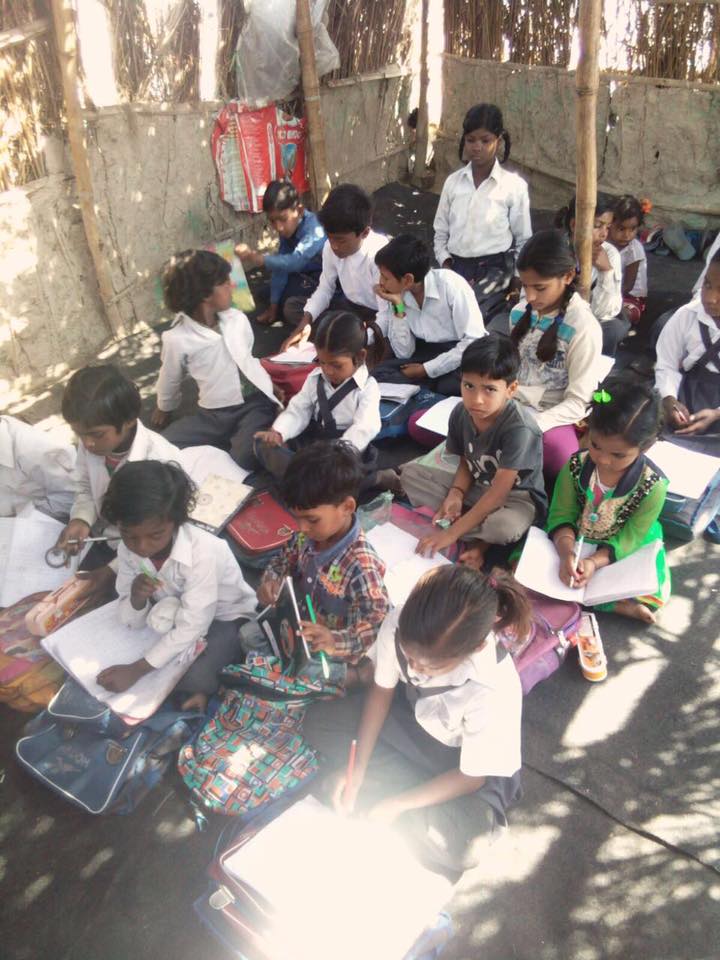
“Appointing teachers was difficult because the area is surrounded by garbage dumps. So I decided to hire students from the slum as teachers,” he says. He started looking for students of Classes 10-12 from underprivileged backgrounds, who could teach the younger kids. One of the first teachers he hired was a student of Class 10, whose father works as a tea seller near the slum. The student is happy with this opportunity because it gives him a source of income to save money for higher education. Today, the school has five part-time teachers and one full-time teacher.
They conduct classes all day – starting from 10 am to 12 noon for children, 12 to 1 pm for the women, and again 4 pm to 6 pm for the children.
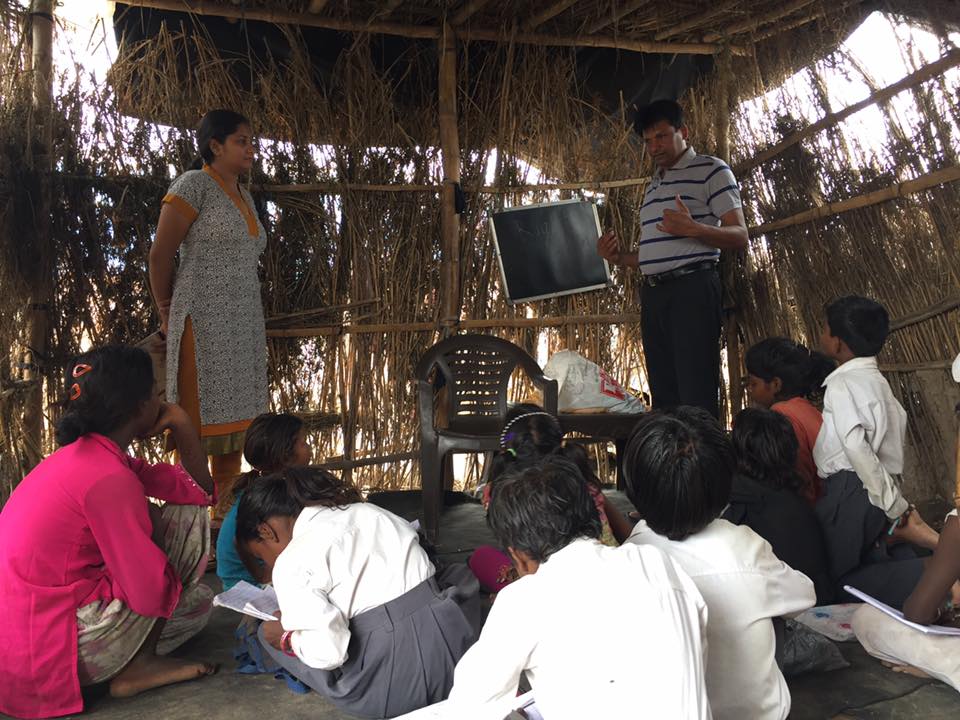
Hari Om is speaking with some CBSE schools in Ludhiana to help enrol some of his kids in mainstream schools as well. These are children who are now capable of understanding what is being taught in an English medium school.
Hari Om has also enrolled three of the children into computer classes. “One of our students is Rani. Her mother once told me that I should teach her daughter properly and make her so well-versed in computers that she gets a job in an office. And the best part is she told me she would not get 19-year-old Rani married for the next six years now. In a place where girls are married off at the age of 15, this is a transformation that cannot be described in words,” he says.
Hari Om used to run a successful business before he decided to quit work and study law in the year 2008.
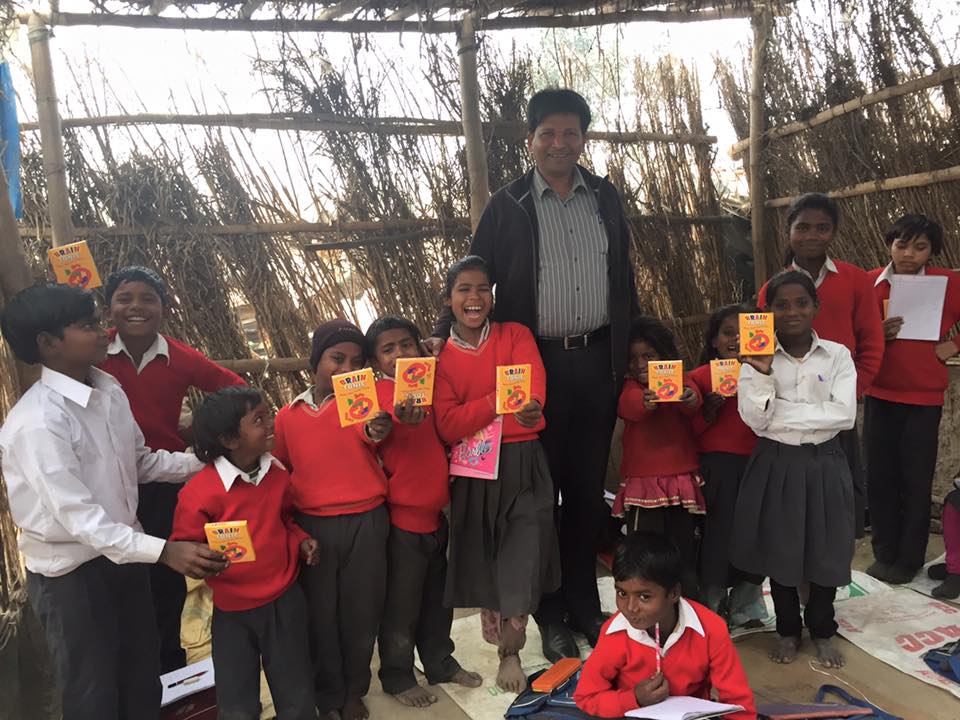
“I am writing a book about the current situation with respect to children and their requirements in India. For this, I felt it was necessary to understand the ground conditions and also the workings of different policies in the country. Studying law, I think, is the best way to do that.”
Apart some contributions from friends, Hari Om has used his own savings to finance the school till now. He provides the students with books, schoolbags and uniforms as well. “When people tell me that they don’t have time for social service, I always ask them — ‘How do you make time for being stuck in traffic jams for four hours every day?’ If we work for the country and for those who need help, a transformation will definitely happen.” he says determinedly.
You can contact him at [email protected]
Like this story? Or have something to share? Write to us: [email protected], or connect with us on Facebook and Twitter.
NEW: Click here to get positive news on WhatsApp!
If you found our stories insightful, informative, or even just enjoyable, we invite you to consider making a voluntary payment to support the work we do at The Better India. Your contribution helps us continue producing quality content that educates, inspires, and drives positive change.
Choose one of the payment options below for your contribution-
By paying for the stories you value, you directly contribute to sustaining our efforts focused on making a difference in the world. Together, let’s ensure that impactful stories continue to be told and shared, enriching lives and communities alike.
Thank you for your support. Here are some frequently asked questions you might find helpful to know why you are contributing?


This story made me
-
97
-
121
-
89
-
167











